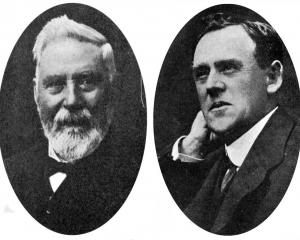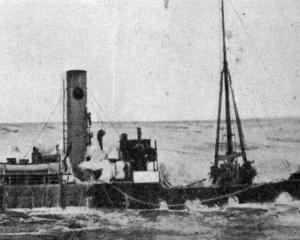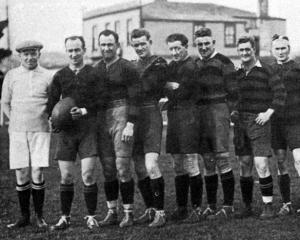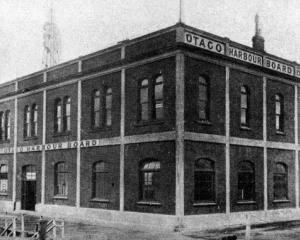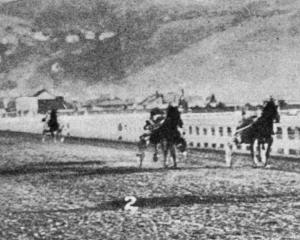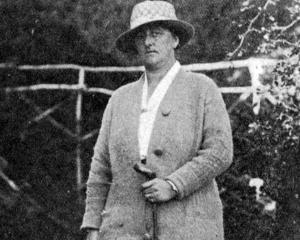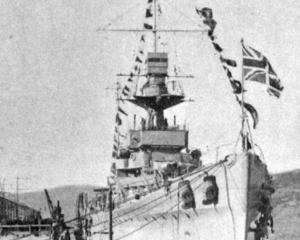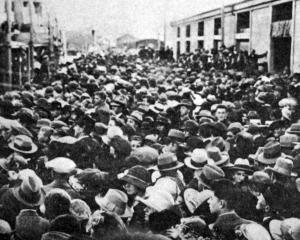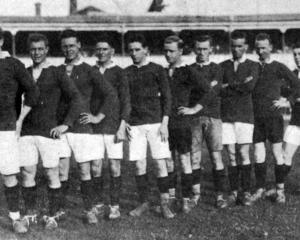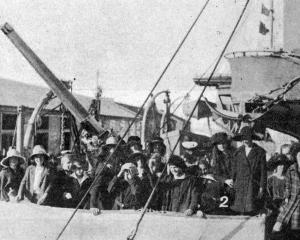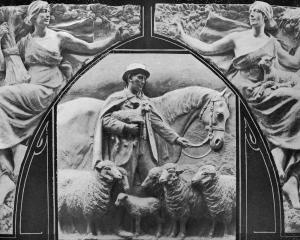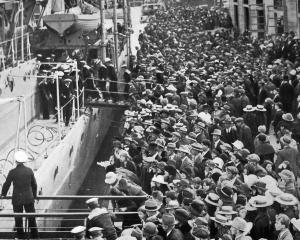The speakers single out likely youths in the crowd and challenge them to join the colours. Scores answer the appeal forthwith, scrambling up the plinth and taking the King's shilling (the formal act of enlistment) amid cheers. A crowd of hundreds of unmarried, unskilled employees at the Post Office, at Enfield, the small arms factory at Waltham, the gunpowder factory, and other Government departments having offered to enlist, disabled soldiers and old men are taking their places. The whole staff of the University College at Southampton enlisted, including three professors and eight lecturers. Married men who have hitherto hung back are enlisting in large numbers. Lord Derby's scheme, whereby men of military age are divided into 46 groups according to ages (from 18 to 40 years), is a signal success, owing to Lord Derby's promise that married men will not be called up until the single men are exhausted. Thus married men 35 years old will not be called up until the members of 38 groups have been recruited, whereas unmarried men in the ''twenties'' are called up almost immediately. A house-to-house canvass is proceeding vigorously . . .
The Wakatipu Mail reports the death of Mr Robert McDougall, at the age of 86 years - probably the oldest resident of Pembroke, and one of the oldest residents of the Lake County. He was a native of Glasgow, and went to the United States of America when 19 years of age, but returned to Britain in 1851. In 1853 he arrived in Melbourne by the ship Champion of the Seas, and engaged in gold mining in various parts of Australia. In August, 1861, he joined the rush to Gabriel's Gully and Wetherstones, and met with moderate success. After revisiting his native land in 1862, he returned to the Otago goldfields, and was successively at the Dunstan and Lake and Fox's find at Macetown, where he set up for the first time as a storekeeper. Mr McDougall subsequently tried South America and the Australian colonies, but soon returned to Otago, and established himself in business at Arrowtown and Cardrona in 1871, and eventually at Pembroke, where he carried on a general storekeeping and bakery business for many years. Deceased was largely interested in coal mining at Cardrona, and was the originator of the shipping service on Lake Wanaka, he having built the p.s. Theodore, which was considered a fine vessel in its day. He was one of the first members of the Lake County Council, which was instituted in 1877, and he held office until 1914 - a period of 37 years. There was no stronger advocate of the needs of Central Otago and the Clutha basin. The late Mr McDougall was made a justice of the peace in 1878. He married in 1862, and had a family of nine, two of whom died.
A lady resident of Fendalton, one night last week, heard a great noise among her poultry (says the Christchurch Press). She went into the yard with a lamp, and found a large hedgehog attacking a hen with chicks. The hedgehog had killed one chick and was in the act of killing another. The marauder was right under the hen, who was attacking it furiously, and had damaged herself severely without hurting her enemy. The lady promptly drowned the hedgehog.
- ODT, 18.11.1915

